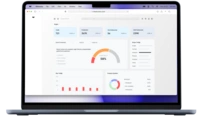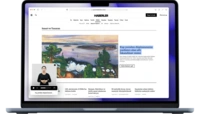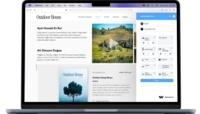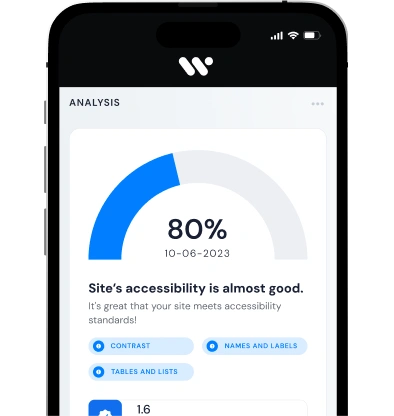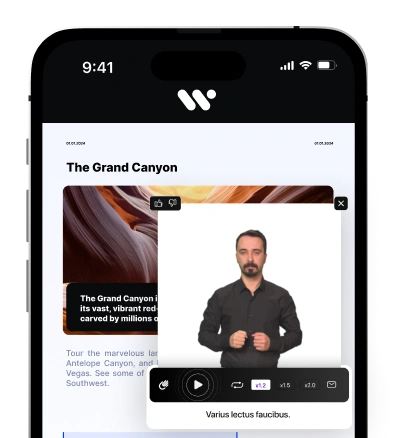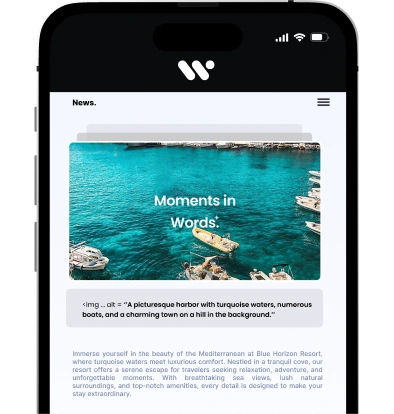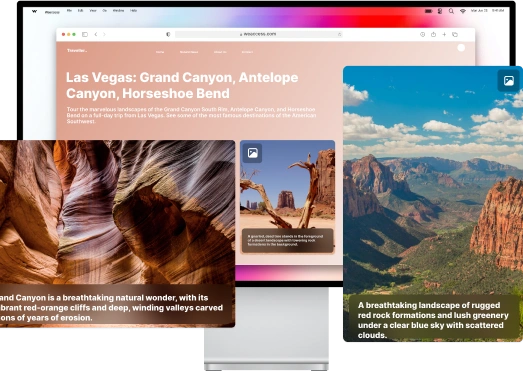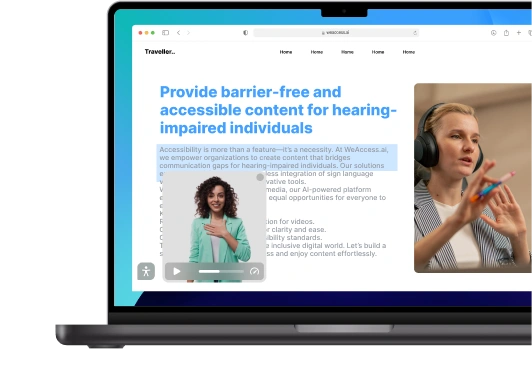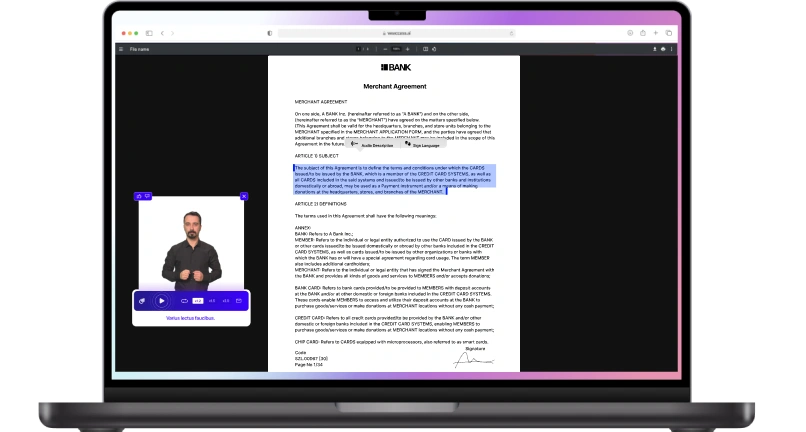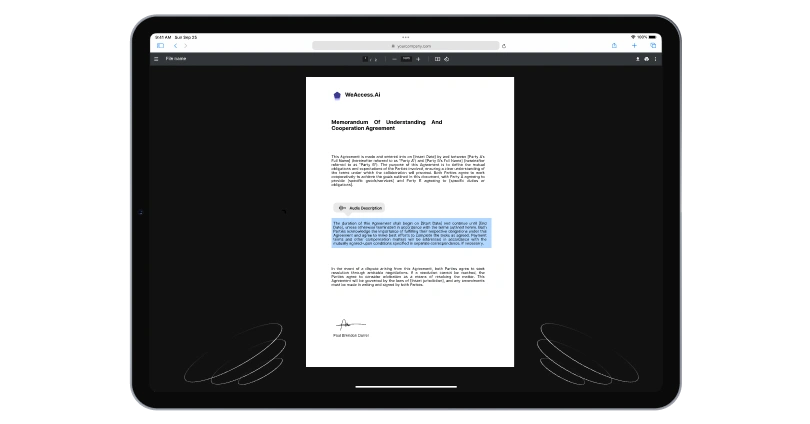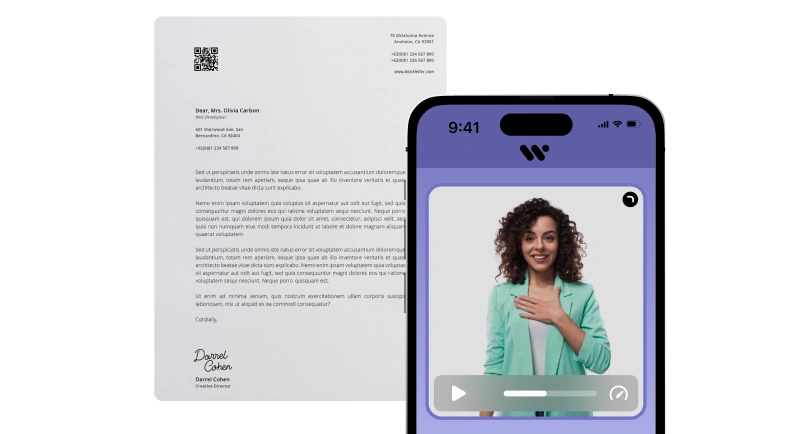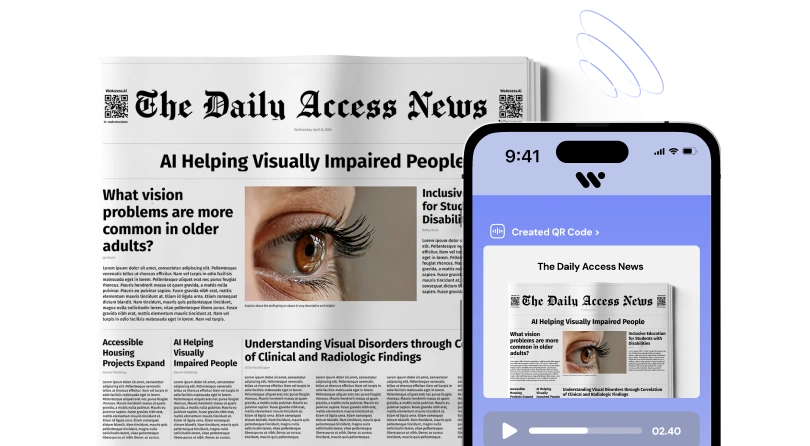Unveiling the World of ADA Compliance Softwarem
In the ever-evolving landscape of digital accessibility, ADA compliance software stands as a cornerstone for ensuring inclusivity and usability. This article aims to shed light on the intricacies of ADA compliance software, offering insights into its significance, tools, services, and the journey towards a more accessible online presence.
What is ADA Compliance Software?
ADA compliance software refers to a set of tools and solutions designed to ensure that digital content is accessible to individuals with disabilities, in accordance with the Americans with Disabilities Act (ADA) standards. These standards are vital for fostering an inclusive online environment, allowing people of all abilities to navigate websites seamlessly.
Understanding ADA Compliance Tools
To delve deeper, let's explore the various tools integral to ADA compliance:
- Ada Compliance Software: Specialized software that automates the process of making digital content accessible, ensuring compliance with ADA standards.
- How to Check for ADA Compliance: Techniques and tools for assessing whether a website meets ADA accessibility requirements.
- Website Accessibility Solutions: Strategies and technologies employed to enhance the accessibility of websites for users with disabilities.
- 508 Compliance Software: Tools aligned with Section 508 of the Rehabilitation Act, which mandates accessibility for federal electronic and information technology.
- Best ADA Compliance Tools: An overview of top-rated tools ensuring robust ADA compliance.
The Importance of ADA Compliance
Ensuring ADA compliance goes beyond mere legal obligations; it's about fostering an inclusive digital environment that accommodates everyone. Accessibility isn't just a checkbox; it's a commitment to making the digital space universally usable.
Choosing the Right ADA Compliance Service
With an array of services available, determining the best ADA compliance service for your specific needs can be daunting. Let's address the pivotal question:
What is the Best ADA Compliance Service?
ADA compliance services encompass a range of offerings, including website audits, remediation, and ongoing monitoring. The best service is one that aligns with your organization's goals and provides comprehensive solutions tailored to your digital landscape.
Navigating ADA Compliance Systems
Beyond services, ADA compliance systems play a critical role in maintaining accessibility. These systems involve a combination of tools, processes, and ongoing efforts to ensure sustained compliance. But what defines the best among them?
What is the Best ADA System?
The ideal ADA system integrates seamlessly with your existing digital infrastructure, offers robust testing and monitoring capabilities, and evolves alongside changing accessibility standards.
Devices and Accessibility
In the digital age, devices play a crucial role in accessibility. Let's explore how ADA compliance extends to the devices we use:
What is an ADA Compliant Device?
An ADA compliant device is one that facilitates accessible interactions for individuals with disabilities. This includes features like screen readers, voice recognition, and adaptable interfaces that cater to diverse needs.
How to Check for ADA Compliance
Now that we've explored the fundamentals of ADA compliance software, let's delve into the essential aspect of checking for compliance. Ensuring that your digital content meets ADA standards is a proactive step towards inclusivity. Here's a comprehensive guide on how to check for ADA compliance:
Conducting ADA Compliance Audits
1. Website Accessibility Solutions: Engage in regular accessibility audits to identify areas that may pose challenges for users with disabilities. These solutions involve in-depth evaluations of your website's structure, content, and functionalities.
2. Ada Scanning Tools: Leverage cutting-edge scanning tools to automate the process of identifying potential accessibility issues. These tools provide detailed reports, highlighting areas that require attention.
Understanding 508 Compliance
As we navigate the intricacies of ADA compliance, it's crucial to understand the relevance of Section 508 compliance. This section of the Rehabilitation Act mandates that federal agencies make their electronic and information technology accessible to people with disabilities.
What is 508 Compliance Checklist?
A 508 compliance checklist is a detailed guide that outlines the specific criteria and standards set by Section 508. It serves as a roadmap for organizations, ensuring they meet the necessary requirements for accessibility.
ADA Compliance Services: Bridging the Accessibility Gap
Having explored the tools and methods for checking ADA compliance, let's shift our focus to the services that play a pivotal role in bridging the accessibility gap.
The Role of ADA Compliance Auditor
1. ADA Compliance Auditor: An ADA compliance auditor conducts thorough assessments of digital platforms, identifying non-compliant elements, and providing recommendations for improvement. Their role is instrumental in maintaining a high standard of accessibility.
Website Handicap Compliance: Beyond Legal Obligations
Ensuring website handicap compliance goes beyond meeting legal requirements; it's about creating an environment where users of all abilities can navigate and interact seamlessly.
The Evolution of ADA Compliance Apps
In the fast-paced world of technology, ADA compliance has found a companion in mobile applications. These apps are designed to streamline the process of maintaining accessibility on the go.
What Sets ADA Compliance Apps Apart?
ADA compliance apps offer features like real-time monitoring, instant issue identification, and step-by-step remediation guidance. They empower organizations to address accessibility concerns promptly.

